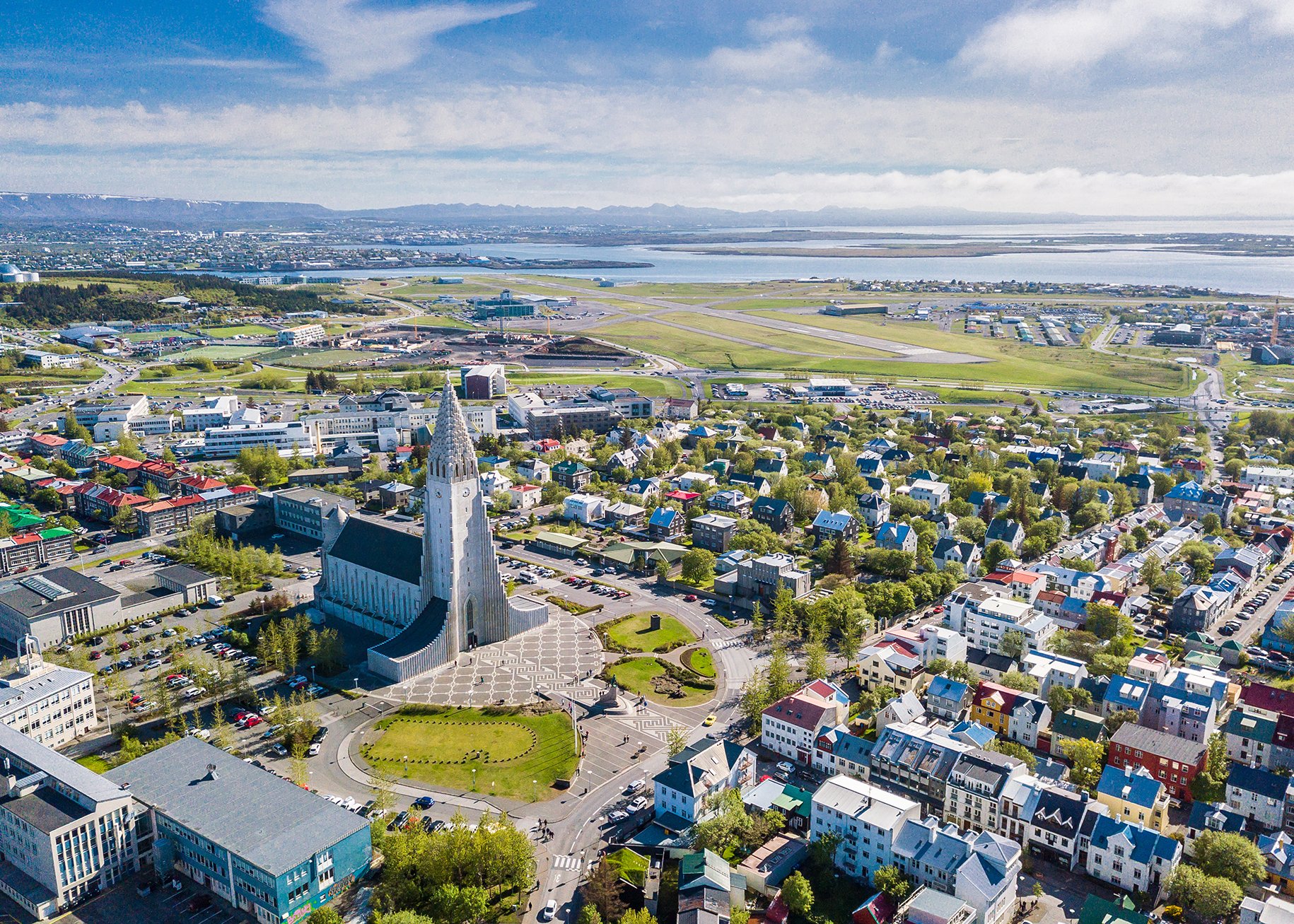Reykjavik, the capital city of Iceland, is a fascinating blend of natural beauty, modern culture, and rich history. Nestled on the southwestern coast of the island, this vibrant city is the northernmost capital of a sovereign state in the world. Despite its relatively small size, Reykjavik offers an abundance of experiences for visitors, from stunning landscapes to innovative cuisine and a lively arts scene.
Reykjavik’s name translates to “Smoky Bay,” a nod to the steam rising from the geothermal hot springs in the area. The city is renowned for its geothermal activity, which provides sustainable energy for heating homes and businesses. One of the most popular attractions is the Blue Lagoon, a geothermal spa located just outside the city. The milky-blue waters, rich in minerals, offer a unique and relaxing bathing experience amidst stunning lava fields.
The city’s layout is pedestrian-friendly, with colorful buildings and a charming mix of old and new architecture. Laugavegur, the main shopping street, is lined with boutiques, cafes, and art galleries, making it a perfect spot for leisurely exploration. For a taste of local culture, visit the Harpa Concert Hall, an architectural masterpiece that hosts a variety of concerts and events, or the National Museum of Iceland, which offers insights into the country’s history and heritage.
Reykjavik is also known for its vibrant nightlife. The city’s bars and clubs come alive, especially on weekends, offering everything from live music and DJ sets to cozy pubs where locals and tourists alike can mingle. The music scene in Reykjavik is particularly noteworthy, having produced internationally acclaimed artists like Björk and Sigur Rós.
Nature is never far away in Reykjavik. The city’s proximity to natural wonders makes it an excellent base for day trips. The Golden Circle route, for example, takes you to the stunning Gullfoss waterfall, the geothermal area of Geysir, and the historic Thingvellir National Park, where you can walk between the North American and Eurasian tectonic plates.
For those interested in marine life, whale-watching tours depart from Reykjavik’s Old Harbor, offering the chance to see minke and humpback whales, dolphins, and porpoises. Birdwatchers will also be delighted by the puffin colonies on nearby islands.
The culinary scene in Reykjavik is another highlight, with a strong emphasis on fresh, local ingredients. Traditional Icelandic dishes such as lamb, seafood, and skyr (a type of yogurt) are must-tries. For the more adventurous eaters, there are local delicacies like fermented shark and puffin meat.
Reykjavik is also a hub for festivals and events throughout the year. The Reykjavik International Film Festival, Iceland Airwaves music festival, and the Winter Lights Festival are just a few examples of the city’s dynamic cultural calendar. These events draw visitors from around the world and showcase the city’s creative spirit.
Despite its modern amenities and cosmopolitan atmosphere, Reykjavik has managed to retain a sense of tranquility and closeness to nature that is rare in capital cities. Whether you’re soaking in a hot spring, exploring the rugged coastline, or enjoying the midnight sun in summer or the northern lights in winter, Reykjavik offers a unique blend of experiences that are sure to leave a lasting impression.
In conclusion, Reykjavik is a city that captivates with its mix of natural beauty, rich cultural offerings, and innovative spirit. Whether you’re an adventure seeker, a culture enthusiast, or someone looking to relax in a stunning setting, Reykjavik has something to offer everyone.







What do you think?
Show comments / Leave a comment